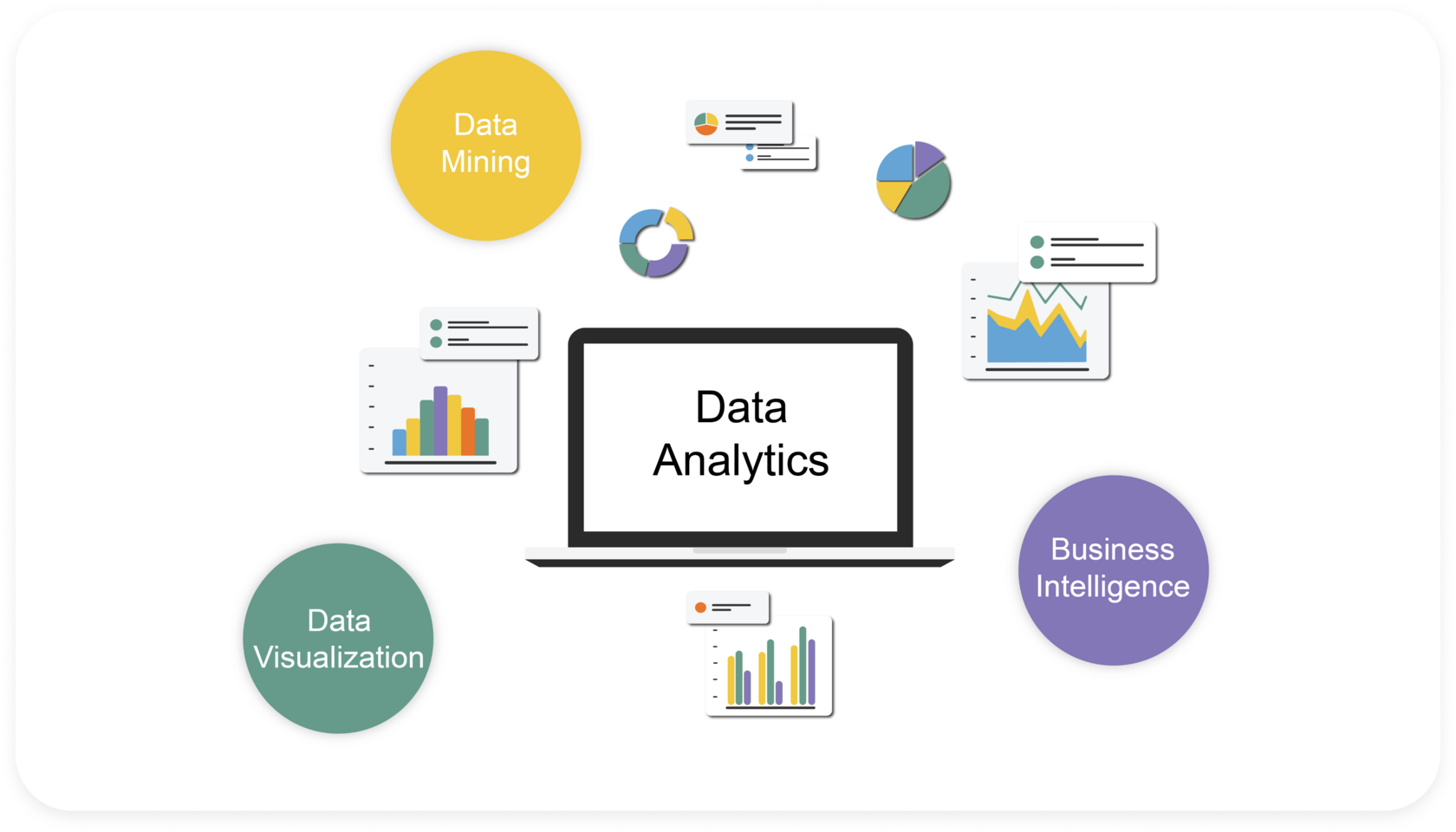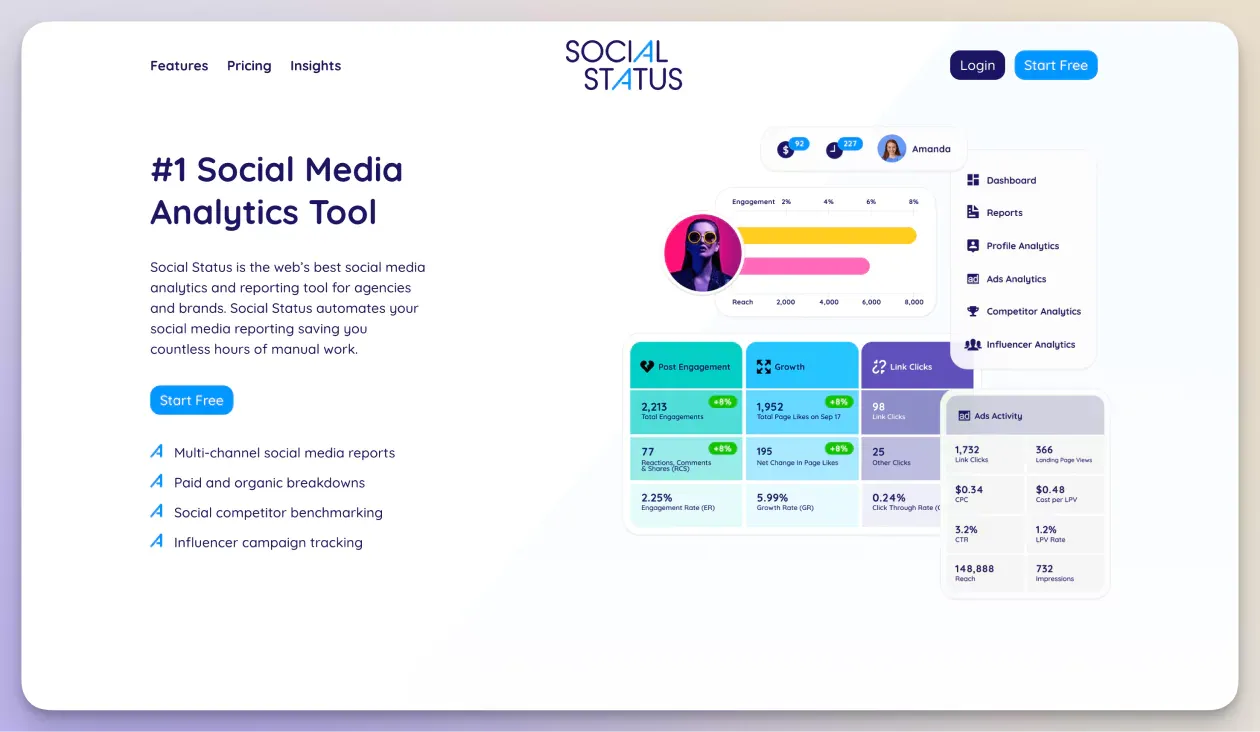Utilize Predictive Analytics for Future-Ready Decisions
Utilize Predictive Analytics for Future-Ready Decisions
Blog Article
Make Best Use Of Development: Exactly How Analytics Drive Better Techniques
In today's data-driven landscape, companies progressively acknowledge the crucial duty of analytics fit reliable growth approaches. By taking advantage of data insights, companies can improve their operational approaches, expect market modifications, and enhance consumer engagement. The obstacle lies not just in collecting data yet in efficiently interpreting it to drive substantial outcomes. As we discover the key advantages and approaches related to analytics, a critical concern emerges: just how can companies ensure they are leveraging these understandings to open their complete capacity? The solution may redefine the future of tactical planning.
Comprehending Data Analytics
Data analytics is a methodical computational analysis of information that enables organizations to uncover meaningful patterns and insights. This procedure encompasses a selection of techniques, consisting of analytical evaluation, anticipating modeling, and data mining, which jointly aim to transform raw data right into actionable details - Analytics. By utilizing these approaches, companies can make educated decisions that are rooted in empirical evidence rather than instinct alone
The foundation of information analytics hinges on its ability to handle huge quantities of details from varied resources. This consists of structured information, such as databases, and unstructured data, including social media sites communications and customer responses. Through making use of specialized software program and tools, experts can extract and refine this data successfully, determining fads and relationships that might not be right away apparent.
Understanding information analytics additionally involves recognizing the significance of data quality and honesty. Precise and trustworthy data is important for meaningful analysis; therefore, organizations have to apply robust information administration practices. The iterative nature of analytics permits for continual improvement and improvement of methods, ensuring that organizations stay dexterous in the face of changing market dynamics and consumer actions.
Key Advantages of Analytics

One of the crucial advantages of analytics is its capability to supply actionable understandings. Organizations can rapidly evaluate huge quantities of data, revealing patterns that may not be right away apparent.
One more significant advantage is improved consumer understanding. Analytics devices make it possible for services to section their target market, track customer habits, and individualize advertising initiatives. This targeted method not only enhances client involvement but additionally drives greater conversion prices.

Implementing Analytics Strategies
To completely realize the benefits of analytics, organizations should adopt structured methods for application. This begins with plainly defining goals that align with broader company objectives. By developing particular, measurable results, organizations can concentrate their analytics initiatives on locations that yield the greatest return on financial investment.
Next, companies ought to focus on data administration to make certain the integrity and safety and security of the data being evaluated. This involves establishing protocols for information collection, storage space, and accessibility while adhering to pertinent guidelines. Making certain high-quality information is important for generating significant understandings.
Moreover, cultivating a culture of data-driven decision-making is vital. This needs training workers to translate analytics findings and encouraging cooperation across departments. When teams recognize the value of analytics, they are a lot more most likely to integrate insights right into their day-to-day operations.
Last but not least, organizations ought to regularly review and improve their analytics strategies. The landscape of data and innovation is constantly advancing, and remaining versatile will permit organizations to leverage new devices and methods efficiently. By carrying out these structured strategies, organizations can optimize the influence of their analytics efforts and drive lasting growth.
Devices for Reliable Evaluation
Reliable evaluation relies upon a selection of devices that assist in the removal of understandings from information - Analytics. These tools can range from basic spreadsheet applications to advanced device learning platforms, each serving a distinct purpose in the logical process
Information visualization software program, such as Tableau and Power BI, plays a crucial function in transforming complex datasets right into understandable visual depictions. These devices allow analysts to identify patterns and next page patterns quickly, permitting even more enlightened decision-making.
Analytical evaluation software, like R and SAS, provides advanced capabilities for carrying out in-depth analyses, including regression, theory screening, and predictive modeling - Analytics. These features equip organizations to attract purposeful conclusions from their more info here information, recognizing potential chances and risks
Furthermore, database management systems such as SQL and NoSQL databases supply the necessary facilities for storing and inquiring large quantities of data effectively. They guarantee that information is organized and available for analysis.
Lastly, business knowledge platforms incorporate various data sources, offering a detailed view of business efficiency. By making use of these devices effectively, companies can boost their analytical capabilities, enabling them to develop methods that make the most of growth and enhance total efficiency.
Study of Success
Effective companies typically leverage data analytics to drive impactful approaches, as evidenced by a number of noteworthy instance research studies. By employing these understandings, Netflix has efficiently customized its material referrals, resulting in increased individual engagement and client retention.

In addition, Starbucks utilizes information analytics to figure out optimum store places and improve its item offerings. By taking a look at customer demographics Find Out More and purchasing patterns, Starbucks efficiently determines high-potential markets and tailors its menu to regional tastes, driving sales and client commitment.
These study highlight that efficient application of information analytics can bring about tactical benefits, promoting innovation and growth within organizations across various industries.
Conclusion
Finally, the combination of analytics into organizational approaches substantially boosts decision-making procedures and fosters lasting development. By leveraging data-driven insights, organizations can determine patterns, expect market shifts, and maximize procedures. The effective execution of analytics devices even more supports agility and innovation, making it possible for organizations to navigate affordable landscapes with higher precision. Inevitably, a commitment to analytics not only drives immediate efficiency improvements yet additionally safeguards lasting success in an ever-evolving industry.
Data analytics is a systematic computational analysis of data that enables companies to reveal meaningful patterns and insights.Comprehending information analytics also involves recognizing the relevance of information top quality and stability. Reputable and accurate data is critical for purposeful evaluation; therefore, organizations need to implement robust data administration techniques.Next, organizations must focus on information administration to guarantee the integrity and protection of the data being evaluated.Successful organizations frequently leverage data analytics to drive impactful techniques, as shown by a number of notable situation research studies.
Report this page